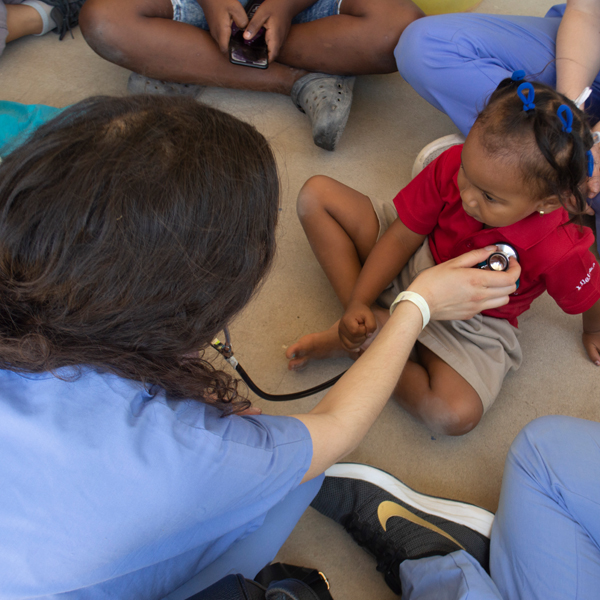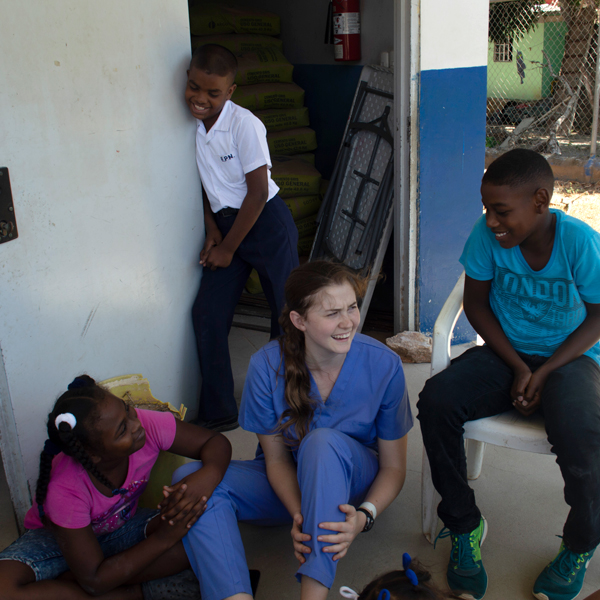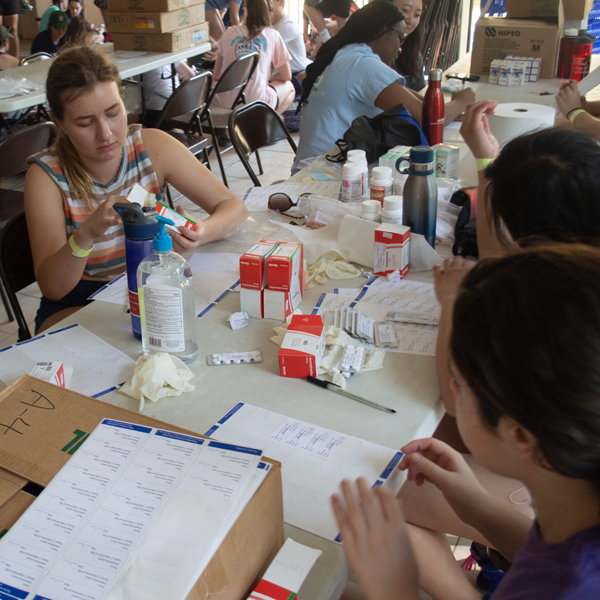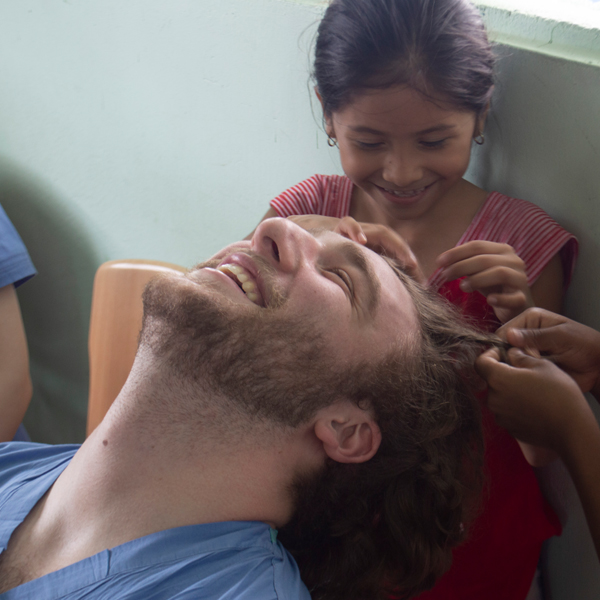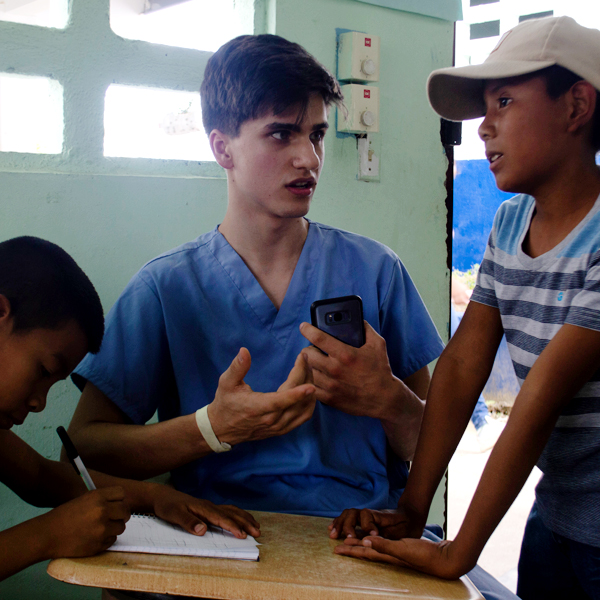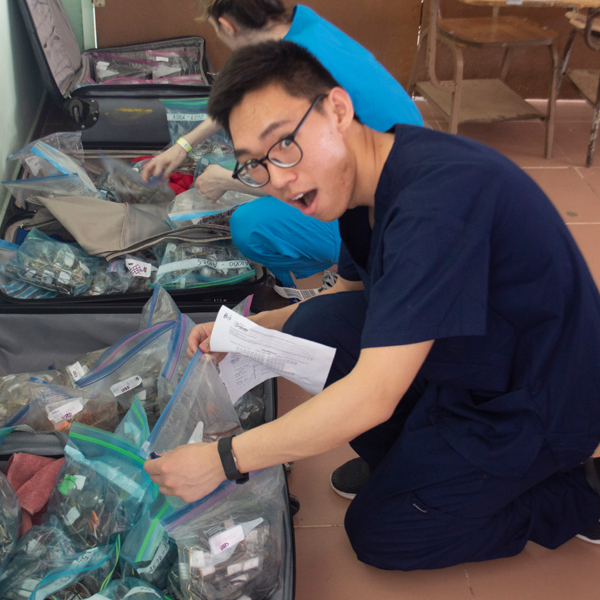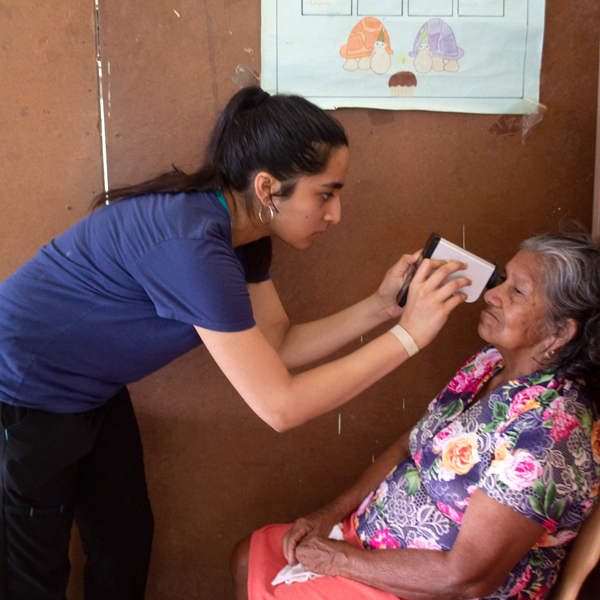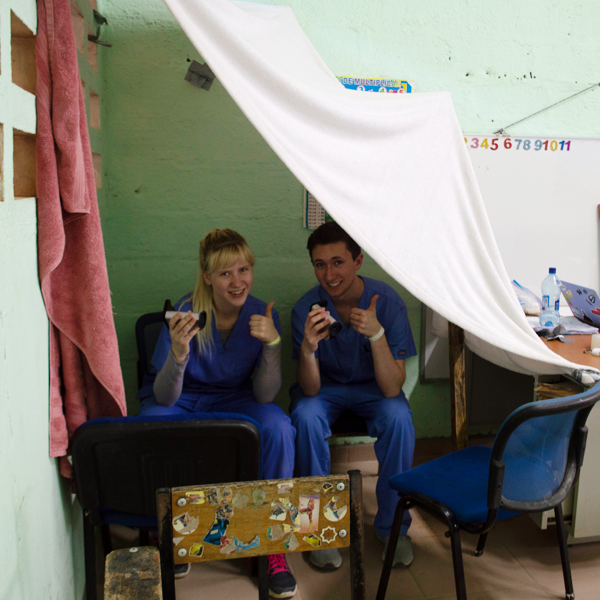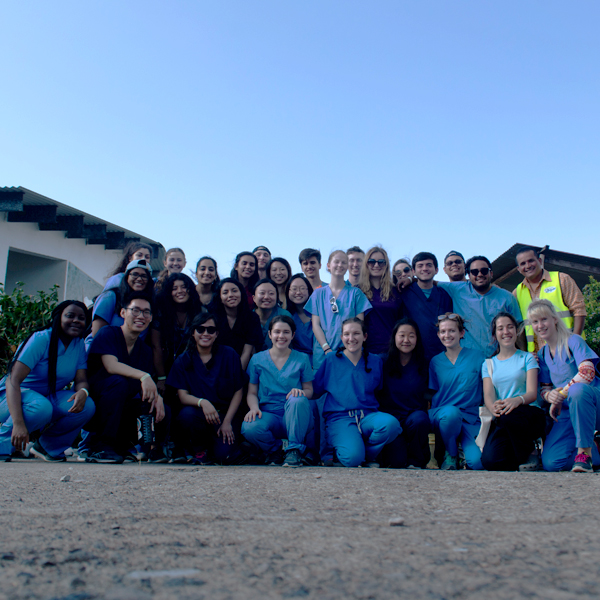A Global Lens
Global Medical Brigades Students Bring Eye-Opening Change to Medical Clinic in Panama
Every March, two dozen students pack their bags, don their scrubs and head out for a service trip as part of Carnegie Mellon University’s chapter of Global Medical Brigades (GMB). Over spring break this year, the group traveled to Pueblo Nuevo, Panama, to set up a medical clinic and work with Panamanian doctors to bring medical, dental and optical care to hundreds of underserved community members.
This year marked junior chemistry major Nelly Kowalewski’s third trip with GMB and her first trip as the education and co-vision chair for the group.
“The reason I keep coming back to Global Medical Brigades every year is because of the interactions I have with the community there," Kowalewski said. Despite the langauge and cultural differences and the distances between their countries, "it all melts away when you’re there.”
Melting away some of those barriers is what Kowalewski does as education chair. She teaches her fellow students necessary Spanish phrases and vocabulary, along with medical vocabulary to talk to patients about their symptoms and medical needs. She also gives the group a background lesson in the history, culture and customs of the country.
There’s a lot of planning that goes into the trip in other areas, Kowalewski notes. The group meets every week from September through March to run mock clinics in Spanish, organize fundraisers and practice how to take blood pressure and use autorefractors. They also staff weekly shifts at Rite-Aid to collect medications and supplies, run a CMU Crowdfunding project to raise additional funds and catalogue hundreds of pairs of glasses year-round for their in-country vision station.
The meticulous planning helps students assist as many people as possible throughout the week. At the medical clinic, the students help with initial patient intake, by recording patients’ symptoms, taking vitals, referring patients for consultations, distributing medications and supplies, and using autorefractors to measure eye prescriptions. They also provide public health information — this year, they met with children in Pueblo Nuevo to practice nutrition and hygiene education.
Kowalewski says one of the most rewarding aspects is helping community members to see better. Carnegie Mellon GMB was one of the first chapters to pilot a vision station in 2015.
“We have an inventory of roughly 700 or 800 glasses that we bring with us every year,” Kowalewski said. The group measures the prescription of the glasses they collect at UPMC and catalogues them in an inventory programmed by Jaehyun Lee, a junior biological sciences major and vice president of GMB. While in-country, they can input the prescription of the patient’s eyes, as measured by the optometrist, into the program to find the best match and style of glasses for the patient.
“I think the vision station has one of the most immediate and sustainable impacts,” Kowalewski said. After giving one community member a pair of glasses, she remembers his relief that he could see better and his excitement that he could finally play his guitar again.
Seeing this impact on previous trips gave Kowalewski another idea. She noticed that many in the community work outside and are unable to protect their eyes from preventable problems, such as exposure to ultra violet radiation. Kowalewski and Fundraising and Co-Vision Chair Jakub Kowalewski, a sophomore mechanical engineering major, rallied their efforts to set up a sunglasses collection. With the help of the Mellon College of Science and other colleges across Carnegie Mellon, they collected and distributed 300 pairs of sunglasses to patients who came through their clinic.
The moments outside of the clinic are equally as impactful. One of the best feelings, Kowalewski says, is being welcomed into the community and getting to know the people they are working with. The students often get to spend time playing games with the younger kids, connecting with people their own age about their hopes for the future and learning from older community members.
“Global Medical Brigades has been one of the most meaningful and eye-opening experiences of my life, and the interactions and connections that I have made with community members are things that I will remember for the rest of my life and carry with me wherever I go,” Kowalewski said.
